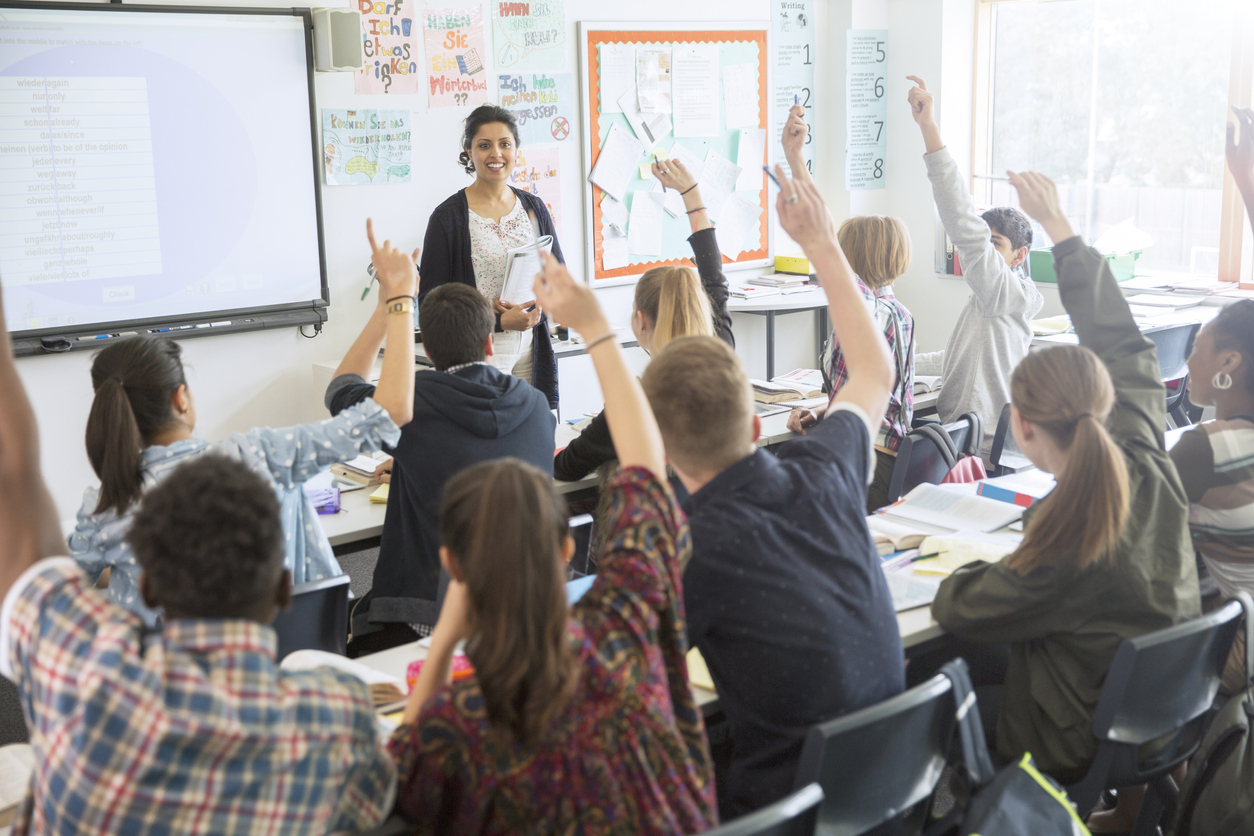Effective Primary Science Tuition Singapore for Better Exam Results
Effective Primary Science Tuition Singapore for Better Exam Results
Blog Article
Checking Out the Various Training Strategies in Key Scientific Research Education And Learning Today
The landscape of key scientific research education is advancing, with numerous mentor techniques gaining prestige in contemporary classrooms. Inquiry-based knowing, hands-on experiments, and the combination of modern technology are redefining just how teachers engage young minds. Furthermore, collective techniques and distinguished instruction are being employed to accommodate the diverse needs of pupils, boosting both involvement and understanding. As we check out these methods, questions occur regarding their effectiveness and the effects for future educational methods. What might these shifts in strategy mean for the next generation of students?
Inquiry-Based Learning
Inquiry-Based Knowing (IBL) is a pedagogical approach that motivates pupils to explore scientific principles via questioning, examination, and hands-on experimentation. This method emphasizes the duty of students as active individuals in their discovering, promoting crucial reasoning and analytic skills. By engaging with real-world concerns, students end up being inspired and interested, which boosts their understanding of scientific principles.
In IBL, educators serve as facilitators, directing trainees as they browse their inquiries as opposed to delivering information straight. This student-centered method enables distinction, fitting numerous discovering styles and paces. Trainees establish skills in developing hypotheses, making experiments, and analyzing data, which are important for clinical proficiency.
In addition, IBL cultivates partnership amongst trainees, encouraging them to share ideas and findings. This collective inquiry advertises social abilities and a sense of neighborhood within the classroom. Additionally, the procedure of questions urges durability, as pupils learn to welcome failing as a tipping rock towards understanding.
Hands-On Experiments
Hands-on experiments are an essential component of reliable science education, matching the principles of inquiry-based learning. These experiments permit trainees to engage directly with clinical ideas, fostering a deeper understanding through experiential knowing. By manipulating materials and observing outcomes, young learners can realize abstract theories in substantial methods.
Such activities promote vital reasoning and analytical abilities, as pupils hypothesize outcomes, conduct experiments, and examine results. This process motivates them to ask questions, fine-tune their understanding, and establish a scientific way of thinking. Hands-on experiments can be customized to varied discovering styles, guaranteeing that all pupils have the possibility to involve meaningfully with the material.
In addition, hands-on experiments typically urge collaboration amongst peers, advertising synergy and communication abilities. Operating in groups allows trainees to share ideas, go over searchings for, and find out from each other, which enhances their general academic experience.
Integrating hands-on experiments into the main scientific research educational program not just improves the discovering environment yet additionally grows a long-lasting rate of interest in science. By actively getting involved in their education, students are more probable to establish a passion for clinical inquiry that prolongs past the classroom.

Innovation Integration
Integrating modern technology right into primary science education has actually ended up being significantly essential in promoting trainee interaction and boosting finding out end results. Using digital devices, such as interactive simulations, digital laboratories, and educational software application, offers students with opportunities to discover scientific concepts in cutting-edge methods. These resources assist in a much deeper understanding of complicated topics by permitting students to envision and adjust variables that would certainly be unwise in a traditional class setup.
Furthermore, technology assimilation urges customized discovering experiences. Trainees can proceed at their very own speed, revisiting tough ideas through multimedia resources, which satisfy various learning designs. This adaptability not only supports specific development however also grows a feeling of freedom in students.
Furthermore, innovation acts as a bridge to real-world science, linking students with present study and professional payments. Access to on the internet data sources and scientific journals expands students' point of views on clinical inquiry and promotes crucial believing skills.
Collaborative Discovering
Joint knowing plays a crucial role in main scientific research education by fostering team effort and interaction skills among trainees. This strategy encourages learners to collaborate, share expertise, and participate in analytical, which improves their understanding of clinical principles. By participating in group activities, trainees discover to verbalize their ideas, pay attention to diverse viewpoints, and bargain options, every one of which are important abilities in both scholastic and real-world contexts.

Research suggests that collaborative knowing can result in raised motivation and involvement in scientific research topics, as students discover satisfaction in shared experiences (primary science tuition Singapore). In addition, this technique prepares students for future joint undertakings, outfitting them with the skills essential for efficient synergy in college and professional atmospheres. Eventually, welcoming collaborative knowing in primary scientific research education can dramatically improve the learning experience and promote a deeper understanding of scientific query
Separated Instruction

Set apart direction can materialize in different ways, such as differing the content, procedures, or items of learning. As an example, teachers might use tiered assignments that provide differing degrees of complexity, permitting pupils to function at their particular readiness levels. Additionally, adaptable organizing methods can promote collaboration among students with various capabilities, cultivating peer learning.
Analysis plays a critical duty in this technique, as it informs guideline and assists educators recognize each student's one-of-a-kind special info demands. Developmental assessments, such as tests and observations, can direct educators in changing their approaches to improve finding out end results. primary science tuition Singapore. Eventually, by implementing set apart instruction in main science education, teachers can grow a more reliable and equitable discovering setting, empowering all trainees to reach their full possibility in comprehending clinical sensations
Conclusion
In summary, the varied teaching approaches in key science education, consisting of inquiry-based knowing, hands-on experiments, modern technology integration, collaborative understanding, and set apart instruction, collectively add to a much more reliable knowing atmosphere. These approaches promote important reasoning, analytic abilities, and a much deeper understanding of clinical principles. By implementing these techniques, educators can develop encouraging and interesting class that attend to the diverse demands of pupils, inevitably cultivating a lifelong interest in science and enhancing scholastic success.
Inquiry-Based Understanding (IBL) is an instructional approach that encourages pupils to discover clinical concepts through questioning, examination, and useful content hands-on trial and error.Joint discovering plays a vital role in key scientific research education by fostering synergy and communication abilities amongst students.Study suggests that joint discovering can lead to enhanced motivation and involvement in science topics, as pupils find enjoyment in shared experiences.In fostering a comprehensive understanding setting, separated instruction arises as a key method to fit the varied demands and capacities of pupils in key scientific research education and learning. Inevitably, by carrying out separated direction in key science education, educators can cultivate a more effective and equitable understanding environment, equipping all trainees to reach their complete capacity in recognizing scientific phenomena.
Report this page